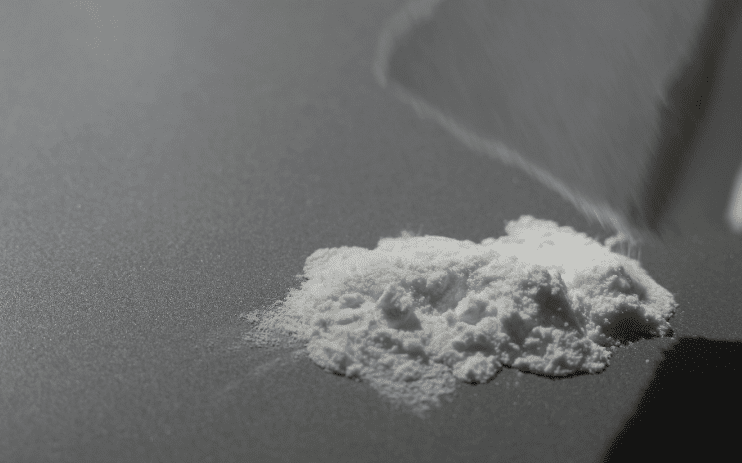Difference Between Cocaine Dependence and Cocaine Addiction
A person who has cocaine dependence experiences withdrawal symptoms when they are not abusing cocaine. Cocaine addiction is when a person abuses cocaine on a regular basis in spite of harm and negative consequences as a result of abuse.
The 5th edition of the Diagnostic and Statistical Manual of Mental Disorders (DSM-5) describes problematic cocaine use as a “stimulant use disorder”. Regardless of classification, abusing cocaine can result in cocaine dependence or full-blown cocaine addiction.
How Cocaine Affects The Body and The Mind
Cocaine abuse results in temporary euphoria and increased energy. When abused in large amounts, which is not uncommon due to the short effectiveness of the drug and rapid onset of withdrawal symptoms, those who abuse cocaine often experience a wide range of unpleasant side effects. These negative side effects feed the cycle of abuse.
Side effects of cocaine abuse can include:
- Mood swings
- Paranoia
- Insomnia
Those who are considered moderate abusers of cocaine may experience:
- Intense cravings
- Feelings of dysphoria
- Depression
- Increased anxiety
- Decreased libido
- Physical and psychological fatigue
- Physical pain in various areas of the body
Heavy and prolonged cocaine abuse can result in:
- High blood pressure
- Heart problems
- Changes in personality
- Psychosis
A cocaine overdose can occur as a result of severe cardiovascular damage, including heart attacks or stroke, and brain damage.
Difference Between Cocaine Dependence and Cocaine Addiction
Studies have shown that the risk of becoming dependent on cocaine within two years of use is around 5%. This risk increases to around 15% for a person who has abused cocaine for nearly a decade. It’s important to keep in mind that these statistics vary somewhat based on methods used to abuse cocaine including smoking, snorting, and injecting.
Smoking cocaine is highly addictive when the substance is smoked or injected when formulated as crack cocaine as opposed to powder cocaine.
Women are more than three times as likely to become dependent on cocaine when compared to men.
Adolescents who abuse cocaine as a pre-teen or teenager are four times as likely to become dependent compared to those who abuse cocaine when they are over 18 years of age.
Treatments for cocaine dependence have been in progress for a long time. The current medications available remain imperfect solutions. Currently, mental health and therapy-based interventions are among the most effective forms of treatment.
A person who has a full-blown cocaine addiction abuses cocaine on a regular basis and has lost control over their use. This implies a physical and/or psychological addiction. A person with a cocaine addiction requires intervention as soon as possible to avoid long-term and life-threatening consequences including the risk of overdose and death.
Cocaine addiction is commonly co-occurring with mental health issues and a person with an addiction to cocaine likely is in need of a dual diagnosis.
Cocaine is a particularly dangerous substance when combined with other drugs such as alcohol or opiates. Mixing cocaine with other substances is a recipe for overdose. Annually, there are extremely high rates of overdose fatalities as a result of cocaine-involved overdoses. This is often because a batch of cocaine was cut or “laced” with potent synthetic opiates such as fentanyl or because a person was drinking alcohol while abusing cocaine.
If you or someone you care about is experimenting with cocaine, please seek assistance as soon as possible. Cocaine abuse is extremely risky and can have disastrous outcomes without proper treatment and recovery.
Common Cocaine Withdrawal Symptoms
There are many common symptoms associated with cocaine withdrawal. Common symptoms can include:
- Agitation
- Restlessness
- Irritability
- Difficulty concentrating
- Shakiness or tremors
- Sleep issues
- Disturbing dreams
Side effects from cocaine withdrawal can be experienced up to ten weeks after use. Symptoms associated with what is commonly referred to as a “cocaine crash” may include:
- Acute depression
- Increased anxiety
- Intense cravings
- Unhappiness
- Exhaustion
- Dehydration
- Hypersomnia (excessive sleeping)
- Increased appetite
- Paranoia
- Suicidal ideation
Timeline for Cocaine Withdrawal
Withdrawal symptoms from cocaine can be extremely unpleasant. There are symptoms that can persist for weeks or even months after the last dose.
Hours after use
Symptoms of withdrawal begin soon after a person ceases using cocaine. Feelings tend to include:
- Irritability
- Anxiety
- Physical exhaustion
- Changes in appetite
During this initial period, cravings are not as strong.
After One Week
This is when intense cravings begin to be problematic. Sleep is often impacted. A person may feel exhausted and have nightmares. It’s not uncommon to experience rapid changes in mood.
After Two to Four Weeks
Cravings continue and feelings of depression and anxiety are common. It may be difficult to focus or concentrate. This is a period often associated with feelings of emotional instability. Irritability, restlessness, and agitation are common.
After Five to Ten Weeks
At this stage, a person’s body is beginning the healing process. The mind and body show signs of lessened withdrawal symptoms. It’s possible to still have cravings but they are usually less intense. Feelings of anxiety may persist. Some individuals recovering from cocaine abuse say they still do not feel an overall sense of well-being after more than a month of abstinence from cocaine.
Early Intervention Makes A Difference
As cocaine abuse progresses from dependency to addiction, it becomes more difficult to have an intervention. It’s important to keep in mind that recovery is possible at any stage of either dependence or addiction. The key is to find a safe and secure environment where a person can recover. At Oasis Recovery, we put our client’s safety and security first while doing our best to provide a calm and comfortable environment to achieve lasting sobriety.
If you or a loved one is showing any of the following common signs of alcohol addiction, consider reaching out for professional help as soon as possible.
- Prioritizing use
- Tolerance
- Cravings
- Withdrawal symptoms
- Increase in use
- Hiding amount of use
- Loss of interest
- Lack of responsibility
- Relationship issues
Reach out to Oasis Recovery Today to Break the Cycle of Abuse
Cocaine abuse is extremely risky and can result in negative consequences for you and your loved ones. To learn more about cocaine abuse, dependence, and addiction, reach out to the experts at Oasis Recovery to speak with a specialist who can provide you with information about our personalized treatment programs and services tailored to meet the individual needs of our clients.










